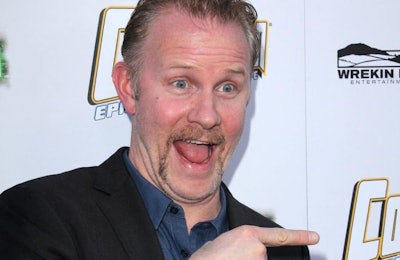
Ever since Morgan Spurlock released his film “Super Size Me,” some people have looked to Spurlock as an authority on healthy eating.
Whether it is deserved or not, Spurlock did get people to think twice about eating at McDonald’s and created a public relations nightmare for the fast food chain that likely led it to work harder at developing healthier menu items.
For those of you unfamiliar with Spurlock’s 2004 film, it chronicled Spurlock’s 30-day experience of eating nothing but food from McDonald’s. And when an employee would ask him if he would like to “Super Size” his order, he said yes. When America watched Spurlock’s health rapidly decline over that short period of time, it resonated with people.
So when Spurlock announced with much fanfare that he would open a restaurant named “Holy Chicken!” in Columbus, Ohio, people couldn’t wait to come.
But it didn’t quite end up what people thought it would be, which leaves many wondering exactly what he will do next.
Before the ‘opening’
In promoting the would-be Holy Chicken! Restaurant, Spurlock said all of the things that people want to hear when it comes to the chickens that were raised for the products that would be served at Spurlock’s restaurant.
According to media reports, Spurlock promised “a new chicken experience” and “fast food made with integrity.” Phrases such as “hormone-free,” “antibiotic-free,” “cage-free,” “free-range,” “humanely raised,” “farm-raised” and “100% natural” were also used in promoting the restaurant’s chicken menu.
As cringeworthy as most of those phrases are because some are irrelevant to broiler chicken production and others mean absolutely nothing, Spurlock knew absolutely what he was doing when he used those words.
Gotcha!
As expected, the Holy Chicken grand opening drew in all sorts of people ready to be part of this new eatery. For some, it was probably because they just wanted to see what the hype was all about and possibly meet Spurlock. For others, it probably had more to do with the fact that the type of chicken that Spurlock was touting seemed to be the type of chicken they wanted to feel good about eating.
Even dignitaries responded. According to the Westerville News & Public Opinion, representatives from Mayor Andrew Ginther’s office, the Greater Columbus Chamber of Commerce, Connects Columbus and Experience Columbus were in attendance, and the state’s House of Representatives sent an official proclamation for the restaurant’s opening on November 19.
But once people sat down at the tables, they were in for a surprise.
Cards on the table revealed that the chickens raised for the meat served there were raised “pretty much the same as all industrial chickens.”
He pointed out that when a restaurant uses certain phrases, like the ones he used, consumers feel better about eating there and think they are eating healthier, when they likely aren’t.
“Every year these chains continue to sell us the same tired food that they always have, but now with improved marketing and spin,” Spurlock proclaimed.
The restaurant’s trial run ran for four days. It isn’t certain whether its doors will reopen.
Will Spurlock’s antic make a difference?
Of all the phrases that were used to promote the restaurant’s food, there are only a few that actually mean anything.
Antibiotic-free chicken, or more correctly stated "chicken raised without antibiotics," is a reality and has become a rapidly-growing trend. But some critics, such as Sanderson Farms, see antibiotic-free chicken as only a gimmick that adds nothing to the quality of the meat product and could compromise animal health.
“Free-range” is also a pertinent term to the broiler industry, but like so many other terms used, relates more to the egg industry. So-called free-range broilers are not let outdoors during the first four weeks on the farm. This might not seem like that big of a deal, except that most broilers are harvested between five and eight weeks of age, depending on whether they are destined for parts at a fast food restaurant or will be deboned to make that all-white meat sandwich.
Finally, “humanely raised” can mean something if backed up by a certain certification program, but how many companies that use that phrase can actually show a seal of certification?
This Holy Chicken! spectacle could be either good for the broiler chicken industry or bad for it. It does point out the absurd use of marketing terms that mean nothing, but it could also bring about a push for niche markets that may sound good but do nothing to improve animal welfare, food quality, food safety or industry profitability.
If nothing else, we can hope that different companies will think twice about using nonsensical word combinations in hopes of placing their products above those of others.


















